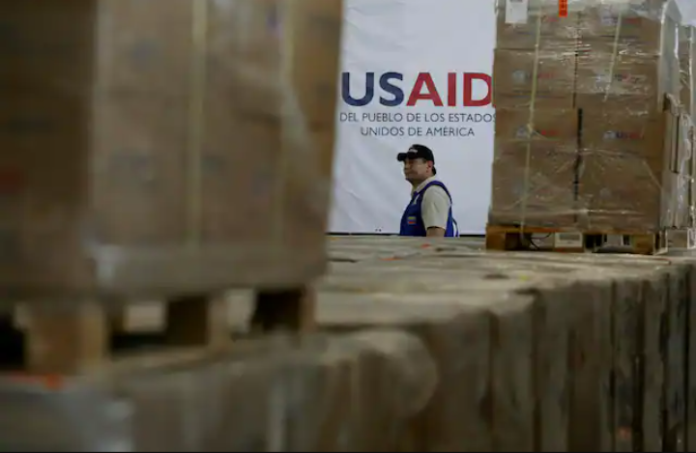The Trump administration has launched a sweeping overhaul of the U.S. Agency for International Development (USAID), sidelining a significant portion of its workforce in a move that could dramatically reshape America’s foreign aid efforts. On Tuesday, USAID announced that most of its direct-hire employees, including civil service and foreign service officials, would be placed on paid leave by the end of the week. Additionally, all overseas staff have been notified to prepare for recall within a month.
The internal notice, released late Tuesday, specified that only personnel handling “mission-critical functions,” core leadership, and specially designated programs would be exempt from the leave orders. This unprecedented directive was also prominently displayed on USAID’s official website, signaling the administration’s firm stance on restructuring the agency’s operations.
This drastic step comes as part of President Donald Trump’s broader agenda to reshape U.S. foreign aid priorities. Since his return to the White House, Trump has consistently voiced skepticism about America’s foreign aid expenditures, arguing that funds should be redirected to domestic priorities. This latest move appears to be in line with his long-standing goal of reducing U.S. involvement in global development projects and shifting focus toward a more nationalist agenda.
USAID, historically known for its humanitarian efforts and development programs across the globe, plays a crucial role in delivering aid to conflict zones, disaster-stricken regions, and underdeveloped nations. The agency’s sudden workforce reduction raises concerns about the future of ongoing projects in areas such as health, education, and economic development. Critics argue that halting or slowing these initiatives could destabilize vulnerable regions and diminish U.S. influence abroad.

Foreign policy experts and humanitarian organizations have expressed alarm over the administration’s decision. They warn that sidelining experienced USAID staff could severely disrupt critical aid programs, leaving millions of people in need without essential support. Additionally, recalling overseas staff might weaken diplomatic relations with countries that rely heavily on U.S. assistance for development and stability.
Supporters of the administration’s move, however, argue that USAID has become bloated and inefficient, with funds often misallocated or wasted on ineffective programs. They see this overhaul as an opportunity to streamline operations, eliminate unnecessary expenditures, and ensure that American taxpayer dollars are used more efficiently.
While the full impact of this decision remains to be seen, it is clear that the Trump administration is committed to redefining the role of USAID within the broader scope of U.S. foreign policy. As staff prepare for recall and projects face potential delays or cancellations, the international community watches closely to see how these changes will affect global development efforts and America’s standing as a leader in humanitarian aid.



